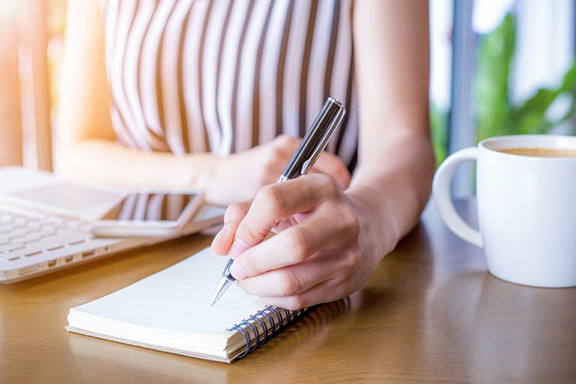Employability Edge Interviews and Recruitment Processes Interview Preparation
Interview Preparation
- Future Students
- JCU Global Experience
- International Students
- Student experience
- Open Day
- How to apply
- Pathways to university
- Living on Campus
- Courses
- Publications
- Mature students
- Scholarships
- Entry options
- JCU Families
- JCU Heroes Programs
- Aboriginal and Torres Strait Islander in Marine Science
- Elite Athletes
- Defence
- AI@JCU
- AALL
- Current Students
- Student Ambassador Program
- New students
- JCU Orientation
- LearnJCU
- Placements
- EDQS
- Unicare Centre and Unicampus Kids
- Graduation
- Off-Campus Students
- JCU Job Ready
- Safety and Wellbeing
- JCU Prizes
- Professional Experience Placement
- Employability Edge
- Art of Academic Writing
- Art of Academic Editing
- Careers and Employability
- Student Equity and Wellbeing
- Career Ready Plan
- Careers at JCU
- Partners and Community
- Alumni
- International partnerships
- About JCU
- Reputation and Experience
- Chancellery
- Governance
- Celebrating 50 Years
- Academy
- Indigenous Engagement
- Education Division
- Graduate Research School
- Research Division
- Research and Innovation Services
- CASE
- College of Business, Law and Governance
- College of Healthcare Sciences
- College of Medicine and Dentistry
- College of Science and Engineering
- Anthropological Laboratory for Tropical Audiovisual Research (ALTAR)
- Anton Breinl Research Centre
- Agriculture Technology and Adoption Centre (AgTAC)
- Advanced Analytical Centre
- AMHHEC
- Aquaculture Solutions
- AMHRA
- JCU Digital Wellbeing Group
- ARCSTA
- Lions Marine Research Trust
- Australian Tropical Herbarium
- Australian Quantum & Classical Transport Physics Group
- Boating and Diving
- Clinical Psychedelic Research Lab
- Centre for Tropical Biosecurity
- Centre for Tropical Bioinformatics and Molecular Biology
- CITBA
- CMT
- Centre for Disaster Solutions
- CSTFA
- Cyclone Testing Station
- The Centre for Disaster Studies
- Daintree Rainforest Observatory
- Fletcherview
- JCU Eduquarium
- JCU Turtle Health Research
- MARF
- Orpheus
- TESS
- JCU Ideas Lab
- CNL
- TARL
- eResearch
- Indigenous Education and Research Centre
- Past Course and Subject Handbooks
- Estate
- Work Health and Safety
- Staff
- Discover Nature at JCU
- Cyber Security Hub
- Association of Australian University Secretaries
- Services and Resources Division
- Environmental Research Complex [ERC]
- Foundation for Australian Literary Studies
- Gender Equity at JCU
- Give to JCU
- Indigenous Legal Needs Project
- Inherent Requirements
- IsoTropics Lab
- IT Services
- JCU Webinars
- JCU Events
- JCU Motorsports
- JCU Sport
- Library
- Mabo Decision: 30 years on
- Marine Geophysics Laboratory
- Office of the Vice Chancellor and President
- Outstanding Alumni
- Policy
- PAHL
- Queensland Research Centre for Peripheral Vascular Disease
- Rapid Assessment Unit
- RDIM
- Researcher Development Portal
- Roderick Centre for Australian Literature and Creative Writing
- Contextual Science for Tropical Coastal Ecosystems
- State of the Tropics
- Strategic Procurement
- Student profiles
- SWIRLnet
- TREAD
- TropEco for Staff and Students
- TUDLab
- VAVS Home
- WHOCC for Vector-borne & NTDs
- Media
- Copyright and Terms of Use
- Australian Institute of Tropical Health & Medicine
- JCU Respect
- Pay review
The key to a successful interview is preparation. Watch this short video for some tips on how to get started.
Research
It can take several weeks after submitting an application before you find out if you have been shortlisted for an interview, so it is important to refresh your memory about the industry, organisation and position description. What are some of their key achievements within the industry?
Look on the company’s website for the mission statement, their core values and beliefs, the services they offer, what they are renowned for, and projects they have completed or may be working on. It is important to find out who the key people are, the number of staff, and the organisational structure. You can also use LinkedIn and Facebook to help you research the organisation and staff. Demonstrating you have researched the company will show the employer you are genuinely interested and want to work for them.
Skills
Read the position description again and make sure you can demonstrate how your skills, knowledge and experience meet the key accountabilities for the role. It is likely that the interview questions will focus on the selection criteria or the written responses on your application. It is important to have examples ready and be able to elaborate on information. If you did not address selection criteria in your application, then highlight key words in the job description and advertisement. Create a list of the technical and transferable skills and brainstorm examples of how you have developed them through university (assignments, projects, placements, workshops), work history, extra-curricular activities and volunteering.
Dress sharp, think smart
First impressions count. Being on time, positive, confident, polite and courteous are important factors when first meeting someone. Your presentation is equally as important to deliver a great first impression. ‘Statistics show that 55% of first impressions are determined by the way you dress and walk through the door in a job interview, while 65% of hiring managers say clothes can be the deciding factor between two similar candidates’ (Workpac Group). Organise your interview outfit well before you find out you have an interview. Consider the work environment that you will be entering. In general, aim for corporate attire.
Prepare
An interview is not a memory test. The interviewer is interested in hearing about your experiences and skills, and is happy for you to refer to (not read from) your notes. Consider taking an A4 folder or case with the following items:
- Copies of your resume (and selection criteria if applicable)
- Dot points for each of the main interview topics – only use as a reference if you get stuck
- Possibly 2-3 one-page artefacts that visually demonstrate your work (such as a photo of some graphic design work, or a snapshot of a project you were involved with)
- Any glowing references regarding your achievements in past or current work
- A list of questions you would like to ask at the end
Interview questions
Make a list of questions that you might be asked. Brainstorm responses and start practicing your answers aloud. The job description, advertisement and selection criteria will give you ideas around the types of questions you are likely to be asked. Ask friends and family to provide constructive feedback on your answers and presentation. Were your answers clear and relevant? What was your body language like? Were you speaking at steady pace? You can also use Big Interview to help you prepare – all JCU students and graduates can access this free resource. It gives you hands-on practice with mock interviews tailored to your specific industry, job and experience level.
Regardless of the type of job you are applying for, the interview questions are likely to cover:
- Background information about you
- Cultural fit with the organisation
- Behavioural questions
- Skills-based questions
You must ask questions at the end of an interview – asking intelligent, meaningful questions shows the employer that you have done your research and genuinely want to know more about the role and organisation. Don’t forget the purpose of the interview is also for you to determine whether the role aligns with your career goals and there is a cultural/organisational fit with your attitudes, values and beliefs. This is your opportunity to resolve any uncertainty that you may have about the role or the organisation. Question ideas:
- What are some of the objectives you would like me to accomplish in this job in the first 30/60/90 days?
- What types of professional development opportunities can you offer?
- How is performance measured and reviewed?
Reduce your anxiety
Don’t let stress impact on your performance. The interview is a two-way conversation. While the interviewer is deciding if you are the best fit for their organisation, this is also the opportunity for you to determine if the role and organisation is the best fit for you. Once you make this mind-set shift it puts you back in control, gives you more confidence, and reduces your stress levels.
There are simple steps you can follow to make sure your nerves don’t let you down
- Appear confident – Even if you are not feeling confident, you need to appear confident. Your mindset and the way you hold your body, will affect your interview nerves and will have a positive impact on your performance.
- Think positive – Thinking positive will help you to display a confident and enthusiastic attitude. Remember that you were chosen out of dozens or even hundreds of other applicants for this interview. The employer has chosen you because they believe you could be the perfect candidate for this job. All you need to do now is prove they were right.
- Calm breaths – Deep breathing has been scientifically proven to reduce stress levels by reducing heart rate and blood pressure to allow oxygen to flow to the brain, which expends nervous energy and allows you to think more clearly. Exercise also helps, so consider a brisk walk or run the evening before your interview as this may help you with a better night’s sleep.
- Smile – The most important thing you can do to relax before an interview is smile! It might sound odd, but smiling releases endorphins, which are the body’s natural antidote to stress.
- Plan your trip – drive to your interview location prior to the interview; check how long it will take and add a buffer for the unexpected. Check where you will park and make sure you have a full tank of petrol to reduce any stops on the way. Being organised and arriving early will help to ease your nerves.
Additional Resources
- Log into Big Interview and watch the video: Watch Overcoming Nerves Part 1 (6:33 mins)
- Log into Big Interview and watch the video: Watch Mastering Nonverbal Communication (9:41 mins)
Instructions - go to Interviews > Interview Curriculum > Mastery Track > to find the video)


